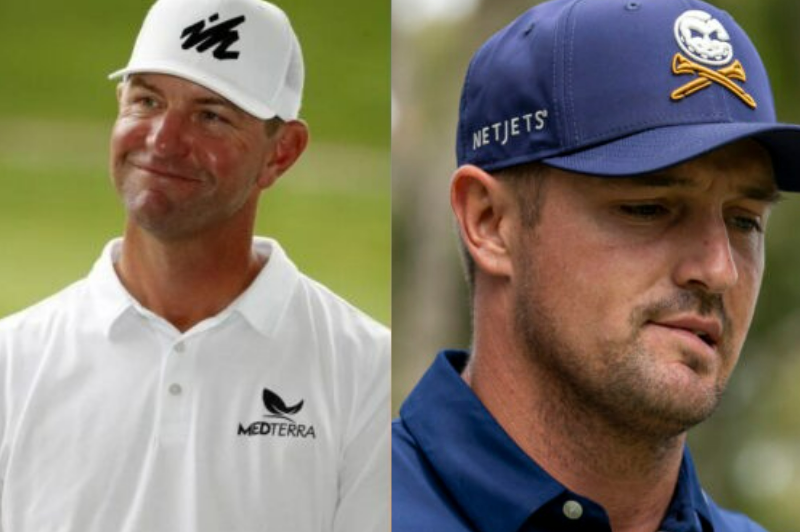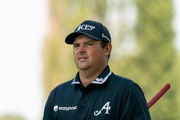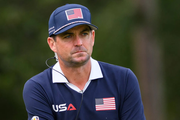

The rift that has split professional men’s golf in two began in June 2023, when the PGA Tour announced a surprise “framework agreement” with Saudi Arabia’s Public Investment Fund (PIF), the financial backer of LIV Golf. The merger proposal was meant to resolve a divisive two-year civil war that had fractured players, sponsors, and fans. It promised to combine LIV’s funding power with the PGA Tour’s legacy, creating a unified commercial golf entity. However, despite initial optimism, talks steadily lost momentum.
Watch What’s Trending Now!
By the end of 2023, the self-imposed deadline to finalize a deal had passed. Since then, merger efforts have remained stalled, with both sides growing increasingly focused on their own paths. Legal complexities, especially antitrust concerns, have slowed negotiations. But the biggest sticking point remains philosophical: LIV Golf insists on keeping its team-based format, while the PGA Tour refuses to integrate it.
Fast forward to mid-2025, and the two tours are planning separate schedules for 2026, effectively preparing to move forward independently. LIV Golf CEO Scott O’Neil continues to express optimism, but PGA Tour officials, including new CEO Brian Rolapp, have adopted a wait-and-watch approach. Meanwhile, PGA Tour players, who were granted equity stakes in the new for-profit PGA Tour Enterprises model, are split on whether they even want reunification at this point.
ADVERTISEMENT
Against this backdrop, Lucas Glover—the 2009 U.S. Open Champion and 21-year PGA Tour veteran—used his platform on “The Lucas Glover Show” on SiriusXM PGA TOUR Radio this week to deliver his most candid remarks yet on the stalled merger and the emotional toll it’s taking. “I think we have to clarify ‘we’ at this point,” Glover began, challenging the notion of a unified ‘we’ in today’s fractured golf landscape. His words were direct, unapologetic, and deeply personal. “Because I don’t want to play with them, me personally. I don’t think they should be back here. I don’t want them here.”
Glover’s stance centers on loyalty. “As a PGA tour player and somebody that dreamed of playing on the PGA tour, and I’ve poured my heart and soul into this tour and game for 21 seasons now, I don’t want somebody that chose another path and a path of less resistance.” His frustration is clear. Glover believes players who left for LIV players—the likes of Bryson DeChambeau, Brooks Koepka, and Phil Mickelson—have taken a lucrative shortcut, choosing guaranteed contracts over the grind of qualifying and competing. For him, reintegrating those players would be an affront to those who remained loyal. “I don’t want them back here competing and taking part of my pie and these kids’ pie that are trying to make it now.”
Stalled negotiations have led to a stalemate in reunification talks in men’s pro golf
Lucas Glover says he’s “having a hard time with it” and grapples with the different perspectives on what’s next for the PGA TOUR on “The Lucas Glover Show:”
📻: https://t.co/ix9AQeOgcV pic.twitter.com/jn9YaGRIdN
— SiriusXM PGA TOUR Radio (@SiriusXMPGATOUR) July 3, 2025
ADVERTISEMENT
Still, Glover acknowledges the commercial upside of reunification. He admits LIV’s top players could boost the PGA Tour’s marketability and future broadcast deals. But emotionally, he’s torn. “All that being said is I don’t think we care anymore about this unification, and I don’t think they do either. And that’s fine with me, but it’s also kind of short-sighted of me because if five, six, seven, eight of them that still move the needle for the public, that’ll help grow us even bigger.” Ultimately, Glover reflects the mood of many veterans who feel betrayed by those who left—and uncertain about whether business growth justifies welcoming them back. “Our focus now is forward, forward, forward. We’re going to grow our sport. We’re going to grow our tour, and we’re going to grow golf through the PGA tour, which is how it’s always been and always should have been.
Glover’s candid reflections underscore the emotional complexity surrounding the proposed reunification. His words highlight a broader tension between personal conviction and professional pragmatism—a dilemma many players quietly wrestle with. But he’s far from the only one with strong views. Across the PGA Tour and beyond, others have voiced their own perspectives on what the future of men’s professional golf should look like.
ADVERTISEMENT
Top Stories
Tiger Woods Told to Seek Bryson DeChambeau’s Help as $500M Golf Project Hits a Rough Patch

Patrick Reed Pays a Heavy Price for Exiting LIV Golf as Worrying Update Surfaces

Dustin Johnson’s New Partner Mocks Patrick Reed as LIV Golf Decision Puts Them in Tough Spot

PGA Tour Champ Disqualified for Using Banned Item at Farmers Insurance Open

‘Ban It’: Keegan Bradley in Trouble Again 15 Days After He Was Caught Using Controversial Golf Method

How does the rest of the golf world feel about the merger?
While Glover’s emotional opposition stands out, the rest of the professional golf world remains deeply divided on the merger issue. Some players support reunification, others reject it outright, and many hover somewhere in between. Scottie Scheffler, the World No. 1, took a more reserved stance earlier this year: “We had a tour where we all played together, and the guys that left… it’s their responsibility, I think, to bring the tours back together.” He declined to speculate on what a unified future might look like, saying, “At the end of the day, I’m here competing.”
Rory McIlroy, long one of the most vocal critics of LIV, has softened his tone in recent months. In May of this year, he acknowledged, “Long-term… we all need to be playing together.” But he emphasized the PGA Tour is strong on its own and under no immediate pressure to strike a deal: “I don’t think the PGA Tour needs to do a deal right this minute.” Matt Kuchar echoed the sense of stagnation during a June 2025 player meeting with CEO Rolapp, stating, “I don’t think it’s any breaking news that the talks have gone silent.”
ADVERTISEMENT
On the LIV side, CEO Scott O’Neil has shown consistent optimism. In a recent interview, he said he believes LIV will become the “dominant player in global golf,” while accepting that the PGA Tour will “always… have a dominant position in the U.S.” O’Neil has floated the idea of coexistence, not just merger, and praised Rolapp’s leadership. Meanwhile, broadcasters like Lanny Wadkins have suggested a middle ground. He believes LIV players could return, but “there’s got to be repercussions.” He’s advocated for fines or suspensions as conditions for reintegration.
In essence, the golf world is still debating whether unity is worth the price of compromise, and whether loyalty or legacy should win out. For now, with the merger in limbo, the PGA Tour and LIV Golf remain separate, and the emotional divide among players, like Lucas Glover, is proving just as tough to bridge as any boardroom negotiation.
ADVERTISEMENT
ADVERTISEMENT
ADVERTISEMENT
